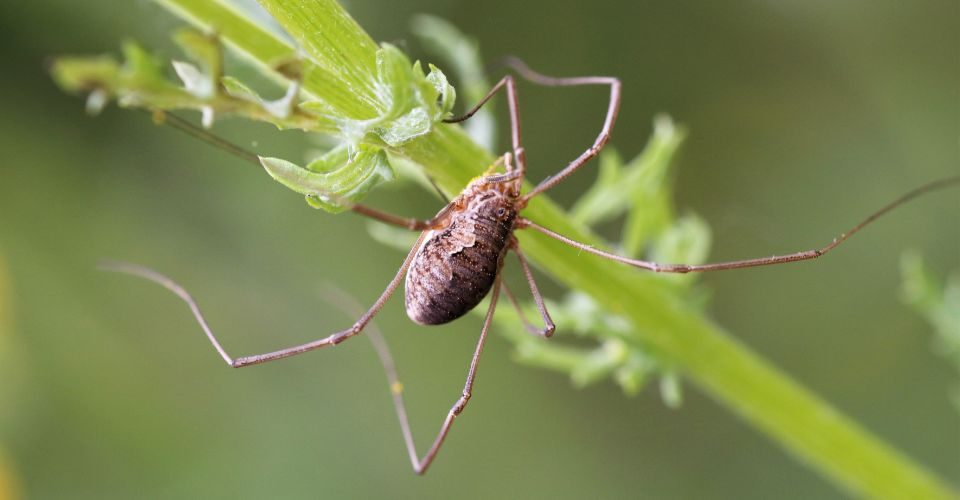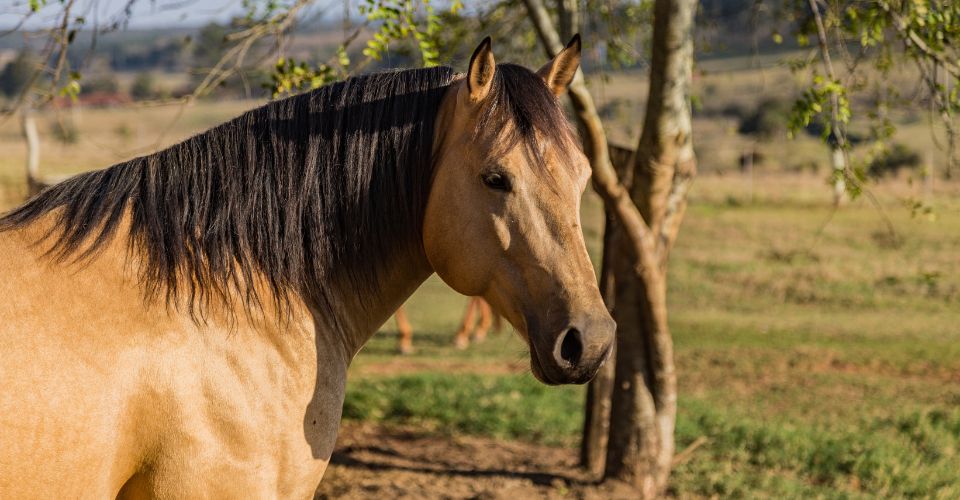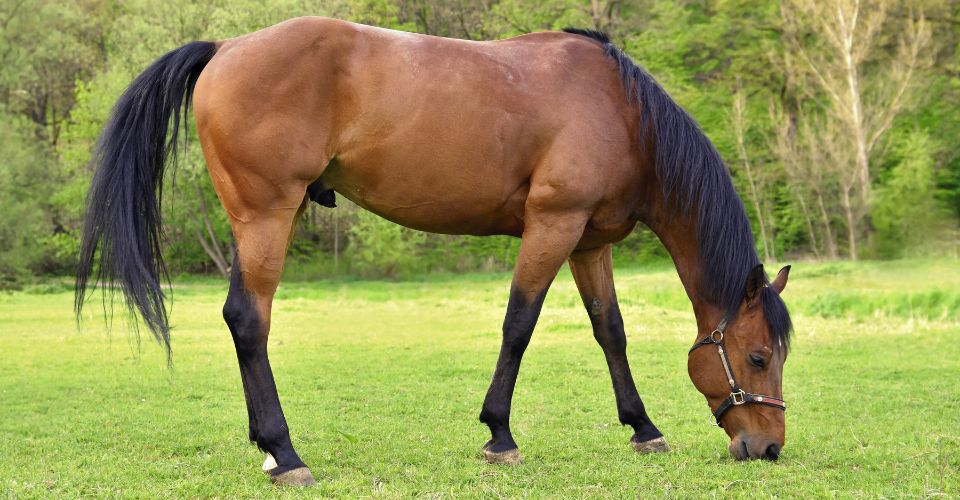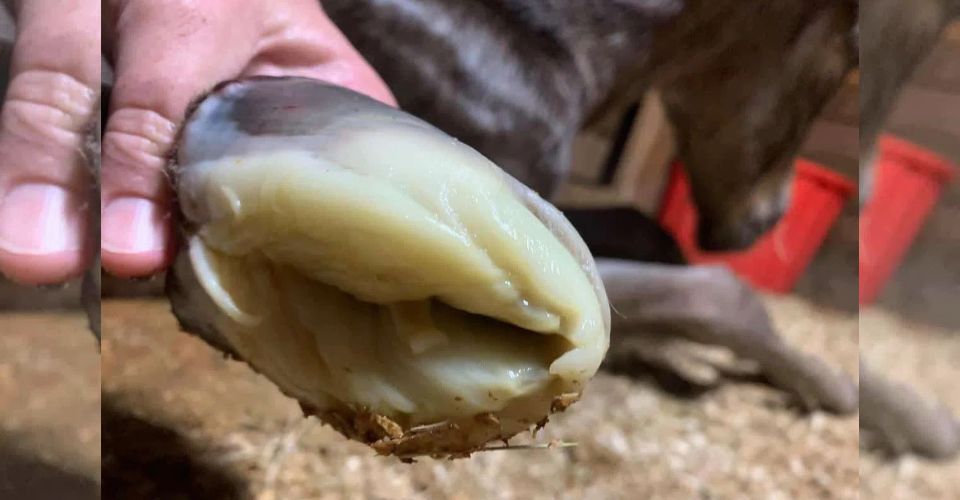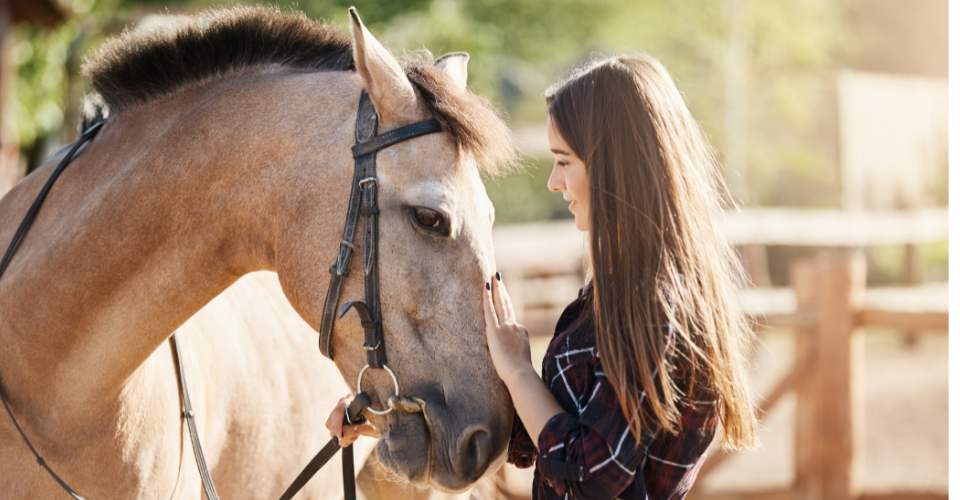Unlike cats and dogs, horses are not known to hunt prey owing to their herbivorous nature – plants and grains are what horses eat the most. But despite their non-hunting behavior, some prey might make their way into your horse’s diet, such as several kinds of insects.
If you live in temperate or tropical climate zones, there would be a high probability of these insects, such as spiders and grasshoppers, found in your horse’s diet, making you wonder: can horses eat spiders?
Can Horses Eat Spiders?
Yes. Horses can eat spiders; most of the time, they do not cause any harm to our equine pals. Though horses do not hunt, they do consume different insects hiding in the grass regularly when they are on their quest to graze in open areas such as crop fields. Spiders are generally healthy for them; however, if any of those turns out to be venomous, the horse might get affected negatively.
Spiders Are Found in Crops for a Reason!
Spiders eat different insects and pests found in crops and keep them safe. According to Norman Platnick, a spider expert, spiders keep our crops from being completely consumed by pests.
Benefits of Horses Eating Spiders
The health benefits spiders entail stem from their nutrition-rich bodies. They contain several useful components great for our racing partners. But remember: horses are too big, and spiders are too small to make any significant health contribution. Only eating in large amounts might help, which is not recommended.
Protein
Spiders, being animals rather than forage, contain larger amounts of proteins. In fact, only a few spiders might be packed with as much protein as a flake of hay has. They, thus, come as a boon for horses as the latter need proteins the most right after energy.
Protein is necessary to maintain enzymes and hormone quality and keep hair, skin, tissue, and muscle healthy. Proteins also contribute to hoof and bone health, which is great for fast horse breeds.
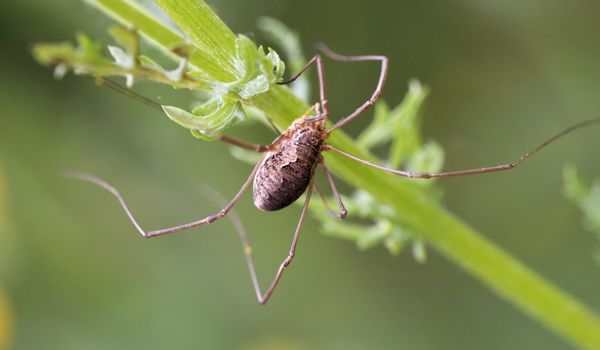
Folic Acid
Spiders are rich in folic acid (vitamin B9), a nutrient that supports hemoglobin levels and healthy red blood cells. Eventually, horses have their muscles maintained through optimal oxygen supply. In addition, folic acid is also vital for keeping metabolic functions normal in all animals.
Zinc
Zinc in spiders may provide for the daily requirement of horses. This particular trace element is as important in horses as in human beings because it protects them from antioxidants, immune problems, and skin diseases. Moreover, severe hoof ailments such as white line disease are kept at bay.
Skin Puncturing Ability of Spiders!
Zinc-infused protein enables spiders and scorpions to puncture through human and tough animal skins.
Omega-3 Fatty Acids
Spiders contain several important fatty acids, such as omega-3. These acids provide a calm demeanor, reducing inflammation, and improving immune function. Besides, they can be especially useful for dressage horse breeds as they contribute significantly towards a healthy, good-looking coat and joint functions.
With the additional benefits of enhancing exercise endurance, omega-3 fatty acids are beneficial for all kinds of physical activities in horses.
Disadvantages of Horses Eating Spiders
Horses are typically safe from spiders, thanks to their fascinating immunity. Nevertheless, some risks do exist.
Venom
Luckily, only a few known spider species are venomous. If a horse ingests such spiders, there would be chances of him getting stung – either on the skin or in the mouth. This can cause serious health problems, but mostly temporarily and on a smaller scale.
For instance, if a horse is bitten by a black widow spider, the neurotoxin venom might cause local muscle paralysis, rigidity, and breathing difficulties.
Pesticides
Spiders and other insects can get pesticides on their bodies as they travel over the crops. If a horse ends up ingesting such beings, it may cause severe poisoning. The affected horse will show symptoms such as abdominal pain, diarrhea, rectal prolapse, and unsteadiness.
However, note that the pesticides present on spiders are too minute in quantity to cause significant poisoning.
Do Horses Like Eating Spiders?
Spiders taste bland and since horses like flavors that are fuller in taste such as bananas and apples, there is little chance that our equine friends are into spiders. Furthermore, horses do not eat spiders deliberately because of their herbivorous nature, and they seldom eat other animals.
What to Do if a Horse Goes Unwell After Eating Spiders?
Pesticides and venom are the only reasons why a horse might go unwell after having eight-legged monsters. In that case, you should contact the vet immediately.
Look for the following signs to confirm such poisoning:
- Itching and rash
- The reddish or purple color of the skin
- Nausea, vomiting, or diarrhea
- Muscle pain
Depending on your time of arrival at the vet clinic, the vet will offer your horse aid differently. For instance, if you arrive immediately, they will provide antivenin and pain management medications. However, if you arrive late, the vet will consider cutting the bitten area a little bit if the muscles turn black. Furthermore, if your horse faces respiratory problems as well, he will be given oxygen support also.
Disclaimer
The information contained in this article is for educational purposes only. Do not administer any medication without your vet’s approval. While our articles are vet-reviewed, much depends upon the history, age, breed, and type of an individual horse.
Depending on your time of arrival at the vet clinic, the vet will offer your horse aid differently. For instance, if you arrive immediately, they will provide antivenin and pain management medications. However, if you arrive late, the vet will consider cutting the bitten area a little bit if the muscles turn black. Furthermore, if your horse faces respiratory problems as well, he will be given oxygen support also.
How to Keep Spiders Away From Your Horse?
To get rid of spiders in your barn, you need to manage the feeding site. Clean the haystack frequently but never apply any harsh chemicals or pesticides to it. Besides, make sure that you clean the barn entirely during the fall season as different insects try to make their way indoors as temperatures plummet.
Also, destroy the cobwebs as soon as they are built to prevent the spider’s family from growing further. If you still fail to get spiders away from your horse, consider getting a professional’s help.
Be Wary of the Brown Recluse Spider!
Brown Recluse is a venomous specie in spiders. They mostly hide during the daytime and show up only when it is dark. Consider raiding the barn at night times often to kill this venomous being if you suspect its presence.
Can Donkeys and Ponies Eat Spiders?
Yes, donkeys and ponies are not much different in terms of dietary needs compared to horses; hence, they can eat spiders with similar benefits and risks. They also get different nutritional advantages from spiders and may get affected if bitten or pesticides are consumed.
Conclusion: Can Horses Eat Spiders?
Yes, horses can eat spiders, but you must be cautious about it. Though spiders are full of many beneficial nutrients, they can pose significant risks if they turn out to be venomous or they have pesticides over them. But the impacts – both positive and negative – are very few because of the small size of such eight-legged monsters. Owing to the risks, it is in your best interest not to let your equine friend have any spiders, be it a horse, pony, or donkey.
Do you have a cat and have the same question for her too? Know if cats can eat spiders.

